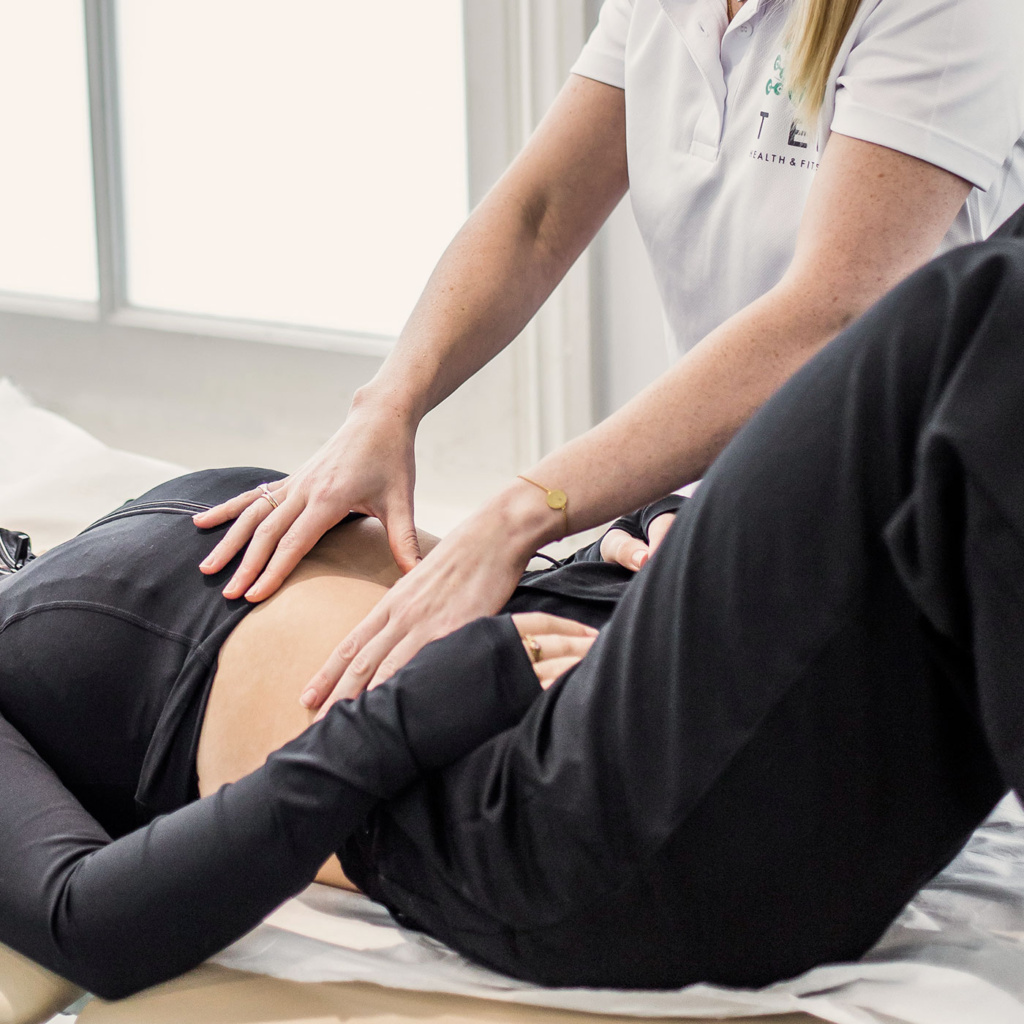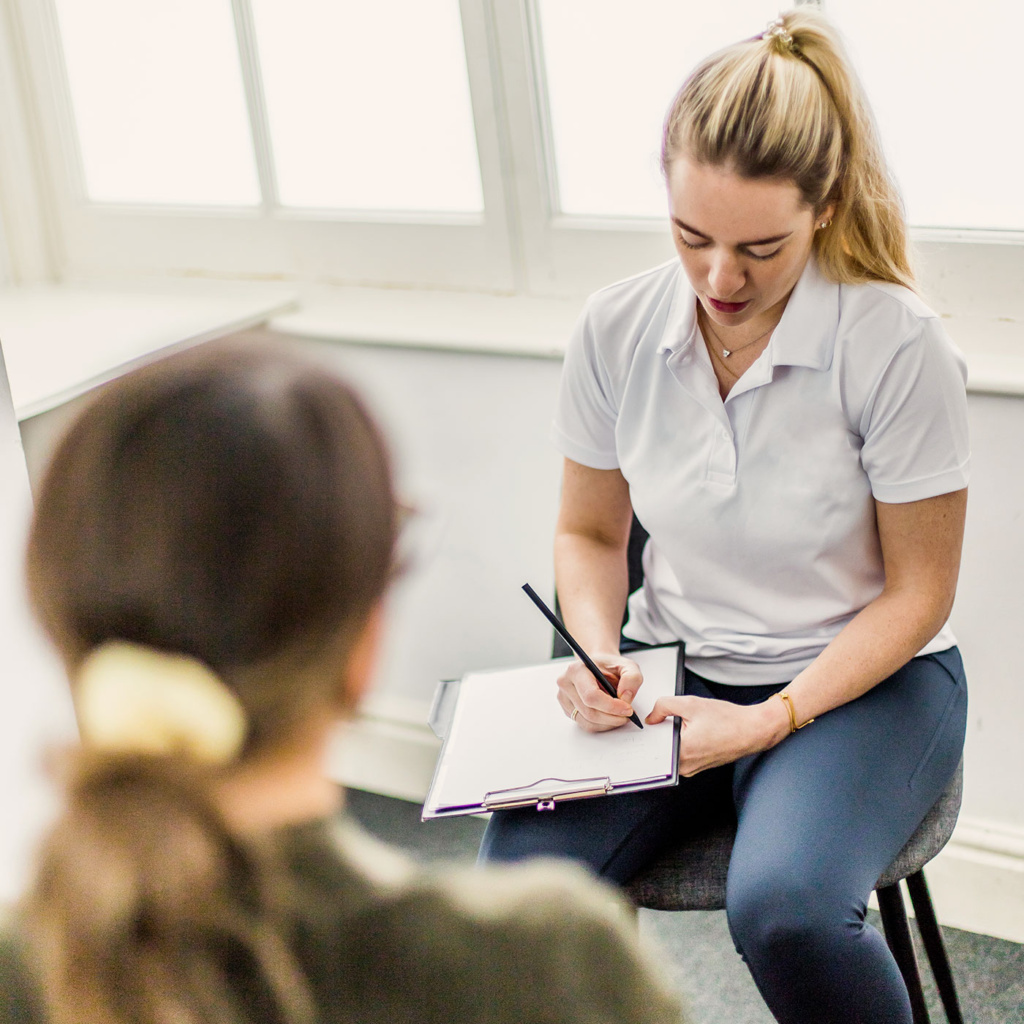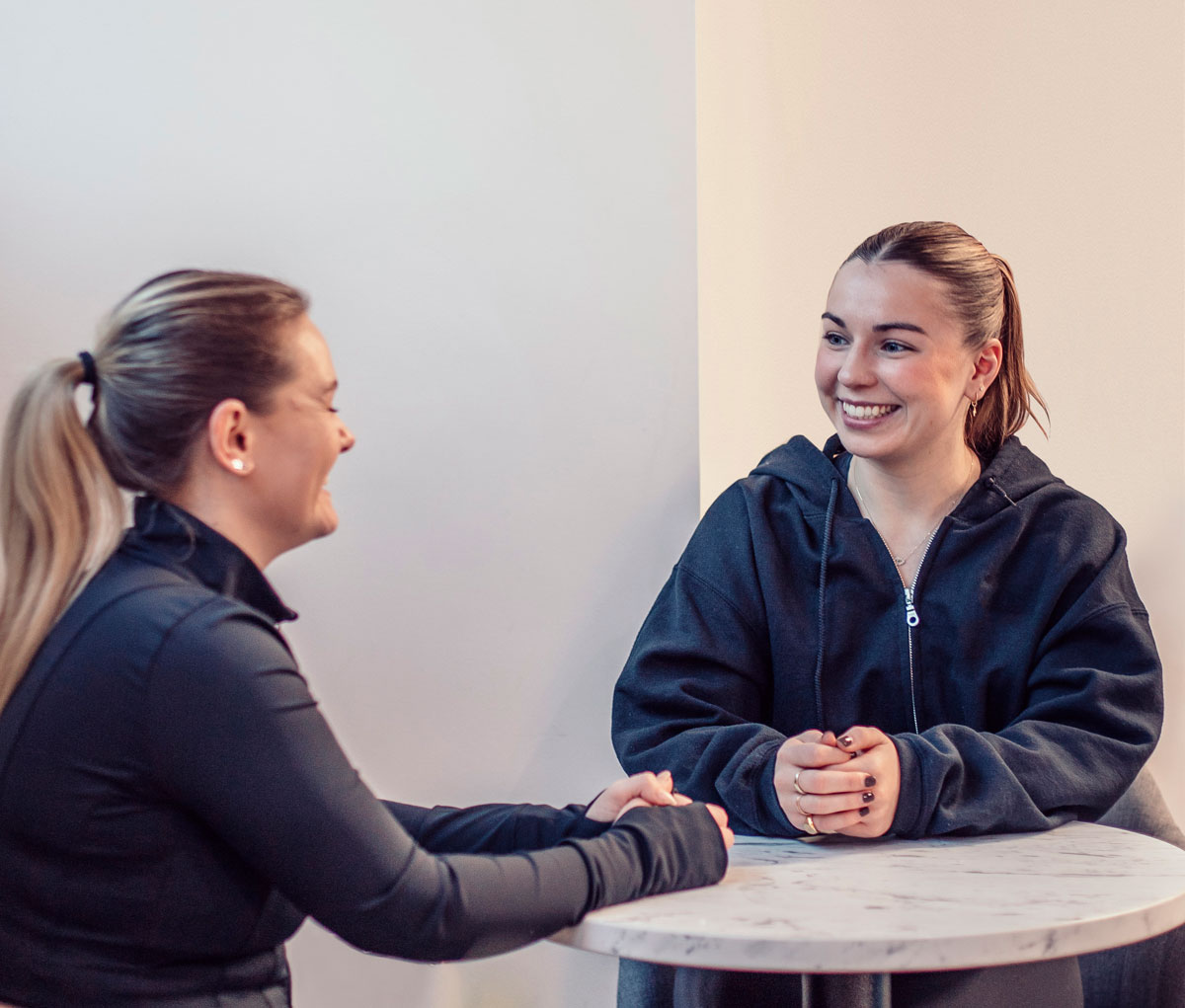
Postnatal Physiotherapy
Pregnancy and labour itself can have significant and often lasting impact on a woman’s body. Instability in the pelvic and abdominal muscles is common, affecting around 50% of women post pregnancy. Over 30% will have diastasis recti (also known as the tummy gap).
These issues can give rise to a number of Pelvic Health issues including constipation, pelvic or back pain, incontinence and pain during sex. Fortunately, whilst Pelvic Health issues are common both during and after pregnancy, the majority are preventable and/or treatable with Postnatal Physiotherapy.

Why have a Postnatal Assessment?
Even if you’re not experiencing any significant discomfort or other symptoms following your pregnancy, we would always recommend having a Postnatal Assessment. It’s a full screening and assessment to pick up any postnatal complications and issues you may have, including those that are not immediately obvious.
We recommend booking an initial Postnatal Physiotherapy Assessment from 6 weeks after labour and treatment can be started straight away, so that any issues do not become chronic. As a result, you’re less likely to require extended Physiotherapy treatment, and are also less likely to need treatment later in life as pelvic floor issues are identified sooner and dealt with immediately.

Ongoing support
Ten’s specialist Women’s Health Physiotherapists can diagnose and treat any conditions or pain you may experience postpartum. And we can provide advice or guidance on any symptoms, issues or concerns.
Common Reasons you would benefit from Postnatal Physiotherapy:
- to identify any areas of weakness, or disfunction post childbirth that could cause pain or injury going forward
- advice and treatment for any pain discomfort you are feeling post-pregnancy
- DRAM (diastasis recti abdominal muscle) check
- care and advice following a C-Section or tear, or if you have haemorrhoids
- support and treatment for urinal and/or faecal incontinence
- advice and support to help you return to activity and exercise safely post pregnancy – from pelvic floor training to returning to your preferred workouts, from running to gym sessions – with guidance on managing your progress
- we can create and deliver a bespoke post natal exercise programme for you, designed specifically around you and your needs
- relief of lumbar and/or pelvic pain
- guidance on safe movement and posture to avoid injury or discomfort when lifting, carrying or feeding your baby
- breast care
If you have questions or would like to talk in confidence to one of our Women’s Health Physiotherapists, please contact us.
NEED HELP?
Speak to a Pelvic Health Specialist
FAQ
About Postnatal Physiotherapy

Still have questions? Read our full FAQs or contact our team, and we'll be happy to assist
-
When should I start postnatal physiotherapy?
Our Postnatal Assessments are suitable from 6 weeks postnatal. This ensures that the vaginal tissue or caesarean section scar has healed before we test the pelvic floor and abdominal muscles.
If you are experiencing pain postnatally, it is safe to have physiotherapy treatment as soon as you feel comfortable coming to the clinic.
-
What to expect from a postnatal physiotherapy session?
Postnatal Assessments start with a thorough subjective assessment to highlight any bladder, bowel, prolapse, pelvic or abdominal symptoms you’re having.
The objective assessment includes an assessment of your posture and pelvic strength, abdominal separation, caesarean scar (if appropriate) and an internal examination to assess scar tissue, pelvic floor strength and endurance and prolapse. Internal examinations are recommended but not obligatory. You will be given the option of having a chaperone for the internal examination.
Your initial assessment includes tailored exercises and a full treatment plan to ensure you achieve your postnatal goals, including a safe return to any sports or exercise routines – many of our clients seek treatment to help them resume running, sports and weight-lifting.
If you are experiencing pain postnatally, we will carry out a thorough subjective and objective examination to establish the root cause of your pain. We will then provide appropriate treatment and a bespoke treatment plan to get you pain-free as quickly as possible.
-
Who can benefit from postnatal physiotherapy?
The World Health Organisation recommends that all women should have access to postnatal physiotherapy, so definitely all women should have a Postnatal Assessment. The body goes through large changes in a short space of time and it’s important that women receive appropriate advice and treatment to ensure they have a smooth postnatal recovery.
-
What types of issues can postnatal physiotherapy help with?
– Prolapse
– Faecal and urinary incontinence
– Faecal and urinary urgency and frequency
– Abdominal separation (rectus abdominis diastasis)
– Return to sport and exercise
– Postnatal pain
– Carpal tunnel syndrome
– De Quervains Tenosynovitis (thumb and wrist pain)
– Painful sex -
Is it safe to have postnatal physiotherapy if I had a C-section?
Yes, it is perfectly safe to have postnatal physiotherapy following a c-section. You can resume physiotherapy as soon as you feel comfortable. If you would like an assessment of your abdominal muscles, c-section scar and pelvic floor, we would recommend waiting 6 weeks after your delivery before having an assessment. If you are struggling with pain, physiotherapy can be started as soon as you feel ready.
-
How many sessions will I need?
Most pre and postnatal issues can be treated in 4 to 6 sessions. However, this is dependent on the severity of symptoms; some people may require additional sessions to effectively treat and resolve their symptoms.

